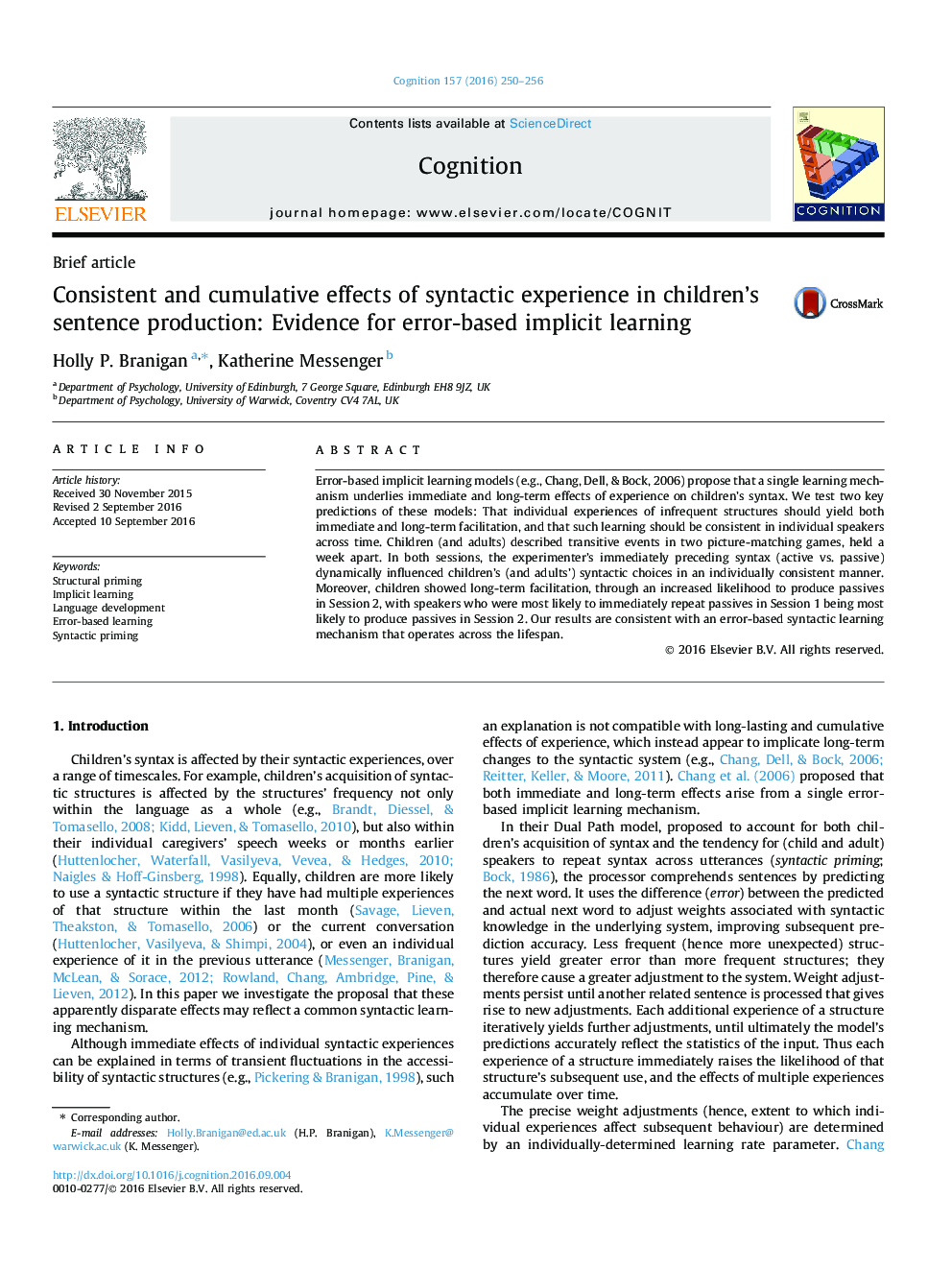| Article ID | Journal | Published Year | Pages | File Type |
|---|---|---|---|---|
| 7285849 | Cognition | 2016 | 7 Pages |
Abstract
Error-based implicit learning models (e.g., Chang, Dell, & Bock, 2006) propose that a single learning mechanism underlies immediate and long-term effects of experience on children's syntax. We test two key predictions of these models: That individual experiences of infrequent structures should yield both immediate and long-term facilitation, and that such learning should be consistent in individual speakers across time. Children (and adults) described transitive events in two picture-matching games, held a week apart. In both sessions, the experimenter's immediately preceding syntax (active vs. passive) dynamically influenced children's (and adults') syntactic choices in an individually consistent manner. Moreover, children showed long-term facilitation, through an increased likelihood to produce passives in Session 2, with speakers who were most likely to immediately repeat passives in Session 1 being most likely to produce passives in Session 2. Our results are consistent with an error-based syntactic learning mechanism that operates across the lifespan.
Related Topics
Life Sciences
Neuroscience
Cognitive Neuroscience
Authors
Holly P. Branigan, Katherine Messenger,
